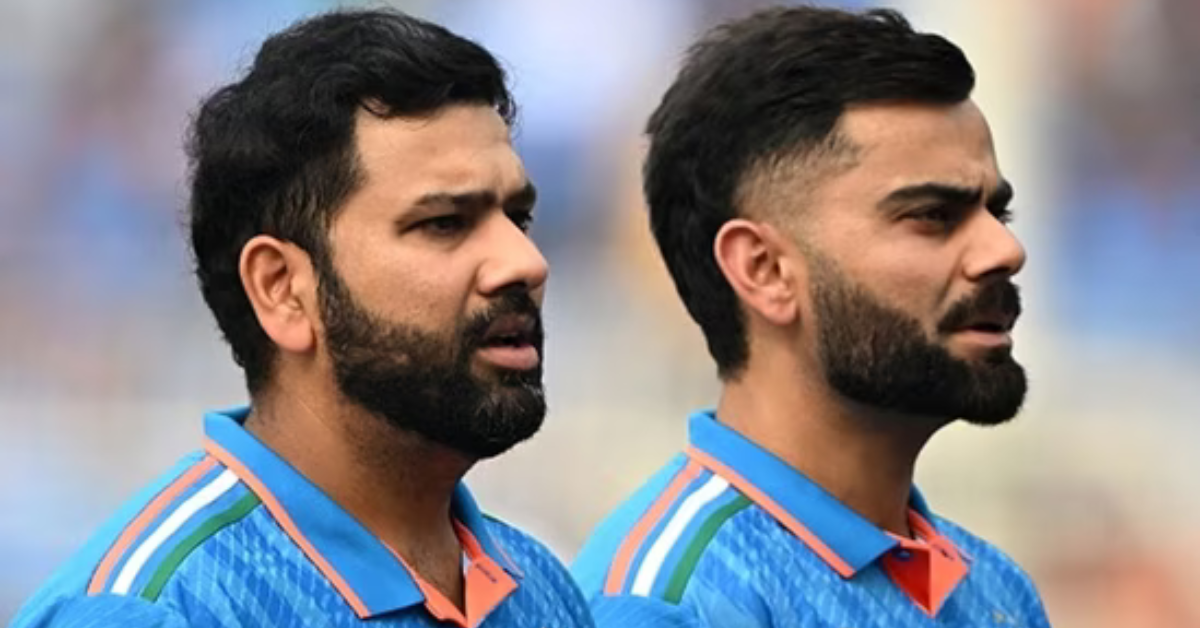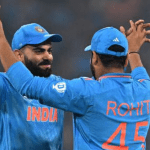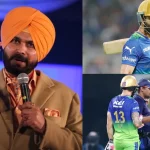In the world of cricket, the ability to gracefully step aside and make way for new talent is often as crucial as the skills displayed on the field. Yet, in the context of Indian cricket, this art of letting go seems elusive, trapped within a web of cultural nuances and individualistic tendencies that shape the sporting landscape. The recent commentary by Australian all-rounder Marcus Stoinis has stirred a deeper conversation around why Indian players struggle to embrace transitions and acknowledge the need for change within the game.
A Tale of Two Cultures: Comparing Australian and Indian Perspectives
Stoinis’ candid remarks following his impressive century for the Lucknow Super Giants against the Chennai Super Kings shed light on a stark contrast in attitudes towards sporting careers. When questioned about being left out of Cricket Australia’s contract list, Stoinis expressed genuine acceptance and support for the younger generation stepping up—a sentiment rarely echoed in Indian cricketing circles.
In contrast, Indian players, despite challenges of form, fitness, or age, often seem reluctant to acknowledge the need for succession planning. This reluctance isn’t confined to cricket alone but resonates across other realms of Indian society, from Bollywood to politics, where individuals find it arduous to relinquish their positions of prominence.
The Role of Cultural Conditioning
At the core of this reluctance lies a deeply ingrained cultural ethos—an unwavering admiration for heroes and a reticence towards accepting their mortality. India’s societal fabric, rooted in hero worship, struggles to redefine the narrative around aging icons in sports. The phenomenon extends beyond cricket, embodying broader societal constructs that champion individual achievements over collective progress.
In a society where deference to authority and established figures reigns supreme, the transition from idolization to pragmatism becomes a formidable challenge. The very essence of hero worship often inhibits critical self-reflection and impedes the collective pursuit of excellence through evolution and adaptation.
Financial Security vs. Intellectual Honesty
Indian cricketers today enjoy unparalleled financial stability, a testament to the sport’s commercial success in the country. However, this security often dovetails with a perceived lack of intellectual honesty regarding one’s place in the game. Players, cushioned by financial comfort, may struggle to confront the inevitable reality of aging and evolving competition.
Take, for instance, stalwarts like Rohit Sharma, Virat Kohli, and Ravindra Jadeja, whose tenure in T20 Internationals has raised questions about adaptability. Despite potential setbacks, there exists a notable absence of voluntary retirements or admissions of waning prowess—a reflection of entrenched cultural norms that prioritize continuity over transformation.
Learning from History: Lessons from the Dhoni Era
Reflecting on India’s cricketing trajectory from 2007 to 2013, a period punctuated by significant victories, offers a lens into the dynamics of transition. Under the leadership of MS Dhoni, a new wave of players invigorated the team’s spirit, underscoring the potential benefits of embracing change and fostering new talent.
However, even Dhoni’s departure from international cricket exemplifies the challenges of letting go. While timely in Test cricket, his prolonged stint in limited-overs formats mirrored a broader reluctance to relinquish the mantle—a narrative mirrored by contemporary stars like Rohit Sharma and Virat Kohli.
The Need for Strategic Intervention: Role of the BCCI
Amidst this backdrop, the onus lies on the Board of Control for Cricket in India (BCCI) to navigate the transition from revered veterans to emerging talent. The BCCI’s stewardship extends beyond administrative duties, encompassing strategic decision-making that fosters renewal and competitiveness.
Decisive measures, such as recalibrating team compositions and nurturing young talent, become imperative in reinvigorating India’s cricketing prowess. Embracing a culture of succession planning, driven by transparency and foresight, offers a blueprint for sustainable excellence.
Looking Ahead: Embracing Change for Future Success
As India navigates the complexities of transition, the imperative remains clear—letting go isn’t a sign of weakness but a testament to resilience and foresight. Embracing change requires a paradigm shift in mindset, one that values evolution over stagnation and collective progress over individual legacies.
The journey towards sporting excellence is intertwined with cultural narratives that transcend the boundary ropes. It beckons a holistic transformation, where hero worship gives way to collective empowerment, and intellectual honesty fuels a legacy of sustainable success.
In the grand tapestry of Indian cricket, the art of letting go isn’t merely a sporting principle but a societal reflection—an invitation to redefine heroism through the lens of humility and foresight. The legacy of legends is not in eternal stardom but in the torch they pass to the next generation, igniting new chapters in the story of Indian cricket.















